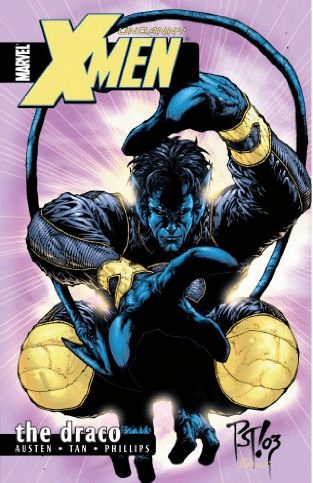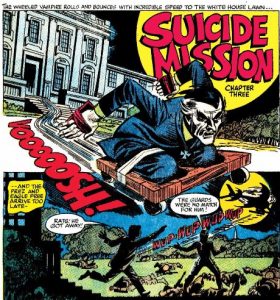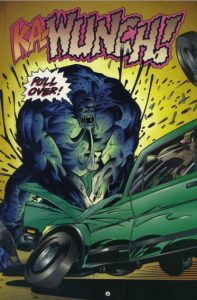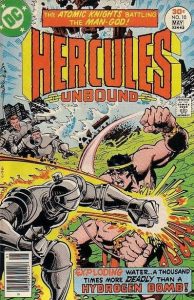Recently, I embarked on a massive purge of my comic collection (which is an awfully optimistic term for four longboxes representing over a decade of often haphazard and occasionally ill-advised purchases).
It’s part of a larger effort to eliminate some clutter in my life, and I’ve gotta say–it’s been a success so far (I’ll admit, the “I’m done with chairs” policy didn’t last long). Over many hours and at least a dozen pots of coffee, I sat there, thumbing through the bags, boards, and regrettable decisions that composed my comic collection, consumed with a single mandate: find everything I thought that was cool when I was in high school, and get rid of it.

It was a little harder than that, of course. It was, at times, a painful, emotional struggle, and I learned some things about myself, and life, in the process. Like, for example, I am a greedy, penny-pinching miser that makes Ebenezeer Scrooge look like a more-charitable Mark Zuckerberg.
To illustrate: Due to an obsession that will probably appear in the DSM someday, I have a compulsion to read everything Brian K. Vaughan writes (that means I was the guy that read Pride of Baghdad. You’re welcome, Brian!). This led me to my comic collection including the first twenty issues of Saga, all first prints. Combined with the first 30 issues of New 52 Batman, I was able to get about $200 from eBay sales.
Since those were the first books I put up for auction, I was pretty optimistic about my prospects. I’m sitting on (nearly) complete runs of Suicide Squad, Mark Waid’s Daredevil, and Who’s Who In the DC Universe. In my head, I was already on a beach somewhere, sipping daiquiris and getting a tan, enjoying my retirement.

As of this writing, I have actually lost money on those comics, thanks to listing fees and the man-hours required to photograph them and carry them out of the basement. See, it doesn’t matter what the Overstreet Guide says—your comics are not worth $3 apiece. Period. Full stop. That’s the first Life Lesson you learn when you try and sell your comic collection:
You will never get what you want.
Eventually, I managed to work out a deal with a local consignment shop run by a particularly cool dude, and three of the four longboxes made the drive over to collect dust in somebody else’s basement for a change. Which brings me to the corollary of the first Life Lesson:
Even when you don’t get what you want, support local businesses anyway.
Astute readers might note that three boxes constitutes only three-quarters of my full collection. That brings us to the second Life Lesson:
What you keep defines you far more than what you throw away.
Look, there’s something attractive about scorched earth. Cutting all the ties to your past, letting go of who you were, and starting over. But (and despite what a few ex-girlfriends might tell you) I’m a sentimentalist at heart. I couldn’t bring myself to liquidate the entire comic collection–I mean, there was no way I could toss every single book in my possession, for various reasons. In no particular order, I decided to keep:
- The Metal Men 100-Page Spectacular by Keith Giffen and J.M. DeMatteis and Buddy Cops by Nate Cosby and Evan Shaner, which I maintain are two of the funniest books of the last ten years;
- Zaucer of Zilk, by Mad Max: Fury Road scriptwriter Brendan McCarthy;
- RPM, written by New York Times bestselling author and WWE Champion Mick Foley;
- Batman and Robin #26 and Superman Annual #12, both of which feature heroes and villains from different countries (France and Mexico, respectively)
- And finally, the majesty that is Sludge.

I’m not going to pitch you on this. I’ll just say it’s Swamp Thing, but in the 90s and in a sewer. It’s perfect.
That list isn’t complete, but it’s representative of the books I kept, and looking at it, it paints a pretty clear picture of who I am: I’ve got a weird sense of humor (that’s based primarily on jokes about the Wu-Tang Clan and sexually confused robots); I’m a sucker for international superheroes, professional wrestlers, and acid trips in comic book form; and I unironically love one of the most obscure comics of all time.
I didn’t go into the process trying to learn anything about myself. But sometimes, that’s just how it goes. Side note: In Batman and Robin #26, we find out that the French keep their supercriminals locked up in an asylum called “Le Jardin Noir,” which means “The Black Garden.” Time to step up your game, Arkham Manor.
The third, and final Life Lesson is this:
When you try too hard to hold on, you will pay for it.
One of my all-time favorite little corners of the DC Universe is the so-called “Great Disaster,” an ill-defined near-future catastrophe that loosely links a handful of otherwise disparate titles: The Atomic Knights, Kamandi, OMAC, and Hercules Unbound all played in that post-apocalyptic sandbox, and it’s a concept that has popped up from time to time since (most recently in Grant Morrison’s mind-bending Multiversity), but not in any real meaningful way.
Anyway, Hercules Unbound is a 12-issue miniseries from the 70s, and it’s great. We’re talking “crown jewel of my comic collection”-great. If I eat my vegetables and go to bed on time, maybe the bosses in the Nerds On Earth volcano lair will let me write an article about it. But I digress. The point is, I wasn’t giving up those books. And I didn’t want to keep them in a longbox, away from all the loving care they deserved. So I started looking into binding.
There are people who will turn your single issues into hardbound volumes—it’s very cool, and I’ve had a couple of runs collected in this way. But it ain’t cheap. So at a certain point, you have to face the realization that you started this whole process to clear some space and maybe put a little bit of cash in your pocket, and now you’re spending even more money just because you want something cool to fit on your bookshelf. That’s when you have to ask yourself if it’s worth it.

So how does all of this end? If you’re like me, I suggest you seek counselling. But if you’re only a little like me, you’ll realize that all those bags and boards you thought were so important at the time just don’t bring you any joy. You’ll realize that you’ve got a few thousand pages taking up space that you’re never going to read again. And you’ll realize that if you shed some of the dead weight, you, and your comic collection, will be better for it.
But unless you have a first print run of Saga, you shouldn’t expect to make a dime.

